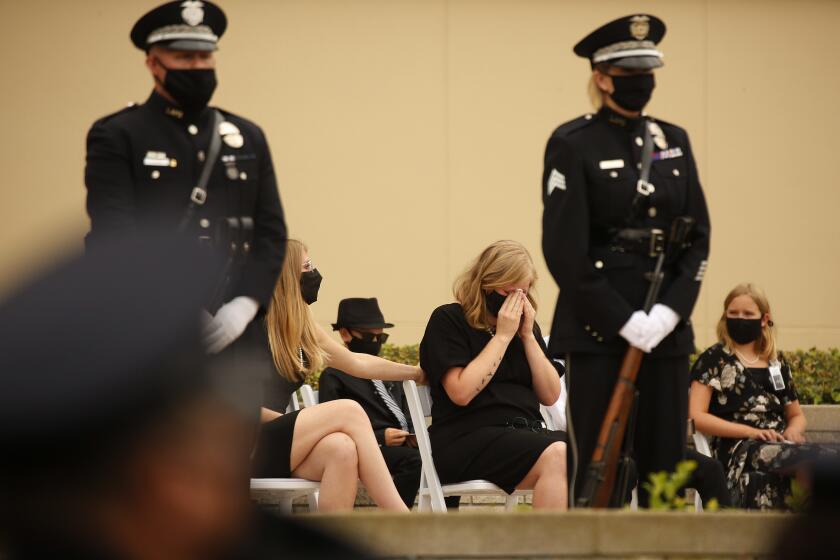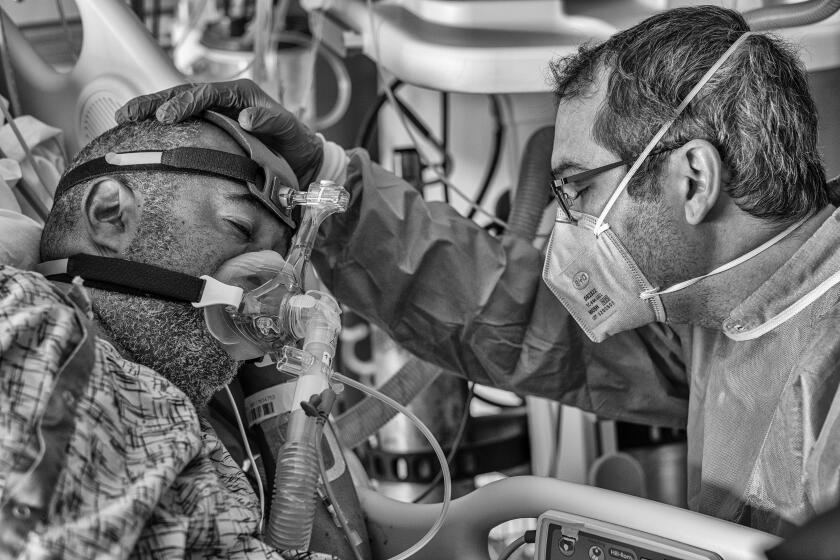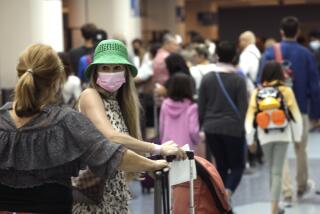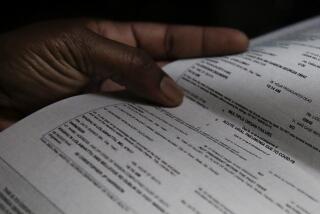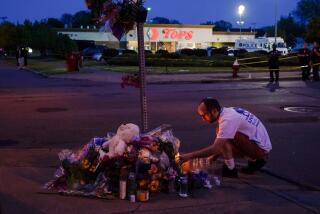After less than 2½ years, U.S. COVID-19 death toll surpasses 1 million
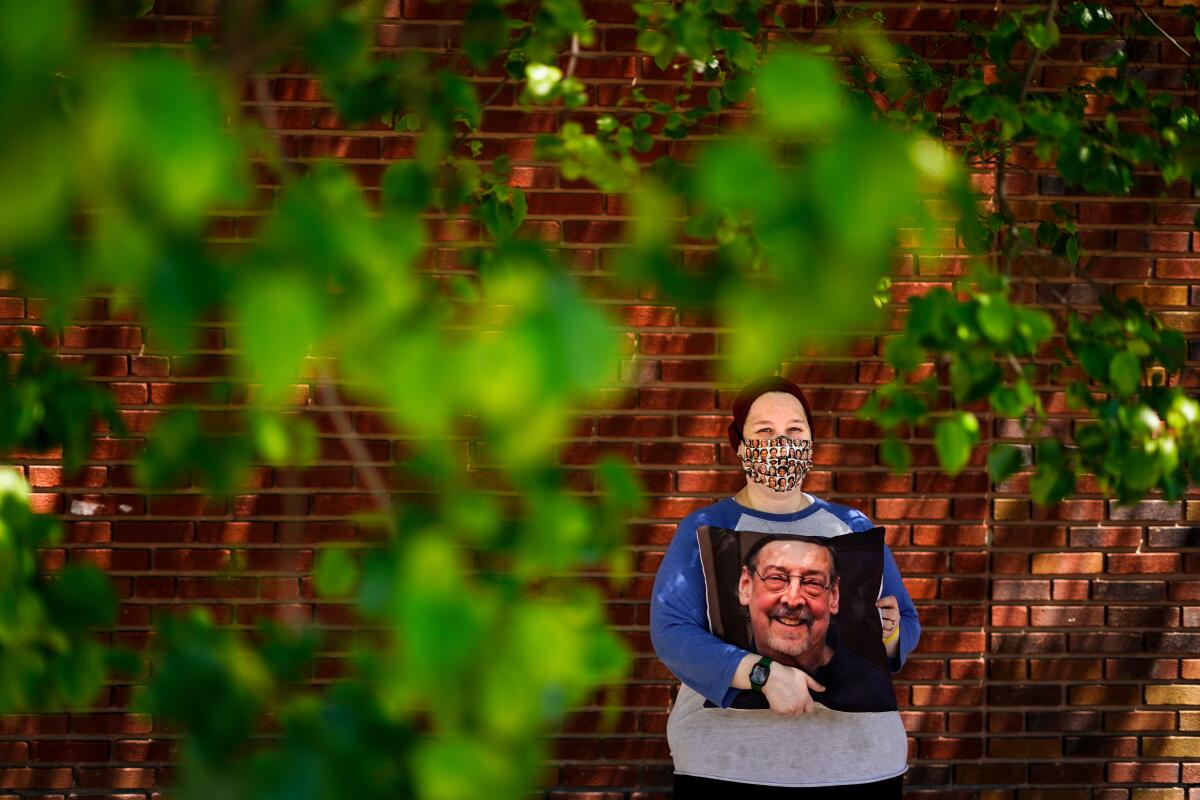
The U.S. death toll from COVID-19 reached 1 million Monday, a once-unimaginable figure that only hints at the multitudes of loved ones and friends staggered by grief and frustration.
The number of dead, as tallied by the Centers for Disease Control and Prevention’s National Center for Health Statistics, is equivalent to that of a 9/11 attack every day for 336 days. It is roughly equal to how many Americans died in the Civil War and World War II combined. It’s as if Boston and Pittsburgh were wiped out.
“It is hard to imagine a million people plucked from this Earth,” said Jennifer Nuzzo, who leads a new pandemic center at the Brown University School of Public Health in Providence, R.I. “It’s still happening and we are letting it happen.”
Three out of every four deaths were people 65 and older. More men died than women. White people made up most of the deaths overall, but Black, Latino and Native American people have been roughly twice as likely to die from COVID-19 as their white counterparts.
Most deaths happened in urban areas, but rural places — where opposition to masks and vaccinations tends to run high — paid a heavy price at times.
The death toll less than 2½ years into the outbreak is based on death certificate data compiled by the CDC’s National Center for Health Statistics. But the real number of lives lost to COVID-19, either directly or indirectly, as a result of the disruption of the healthcare system in the world’s richest country, is believed to be far higher.
The milestone is an indelible reminder of the awful toll that the disease has taken and continues to take.
The U.S. has the highest reported COVID-19 death toll of any country, though health experts have long suspected that the real number of deaths in places such as India, Brazil and Russia is higher than the official figures.
The milestone comes more than three months after the U.S. reached 900,000 dead. The pace has slowed since a harrowing winter surge fueled by the Omicron variant.
The U.S. is averaging about 300 COVID-19 deaths per day, compared with a peak of about 3,400 a day in January 2021. New coronavirus cases are on the rise again, climbing more than 60% in the last two weeks to an average of about 86,000 a day — still well below the all-time high of more than 800,000, reached when the Omicron variant was raging during the winter.
The largest bell at Washington National Cathedral in the nation’s capital tolled 1,000 times a week ago, once for every 1,000 deaths. President Biden on Thursday ordered flags lowered to half-staff and called each life “an irreplaceable loss.”
How to process the pandemic death toll? For one hospital chaplain, it means also remembering relatives left behind.
“As a nation, we must not grow numb to such sorrow,” he said in a statement. “To heal, we must remember.”
More than half the deaths occurred since vaccines became available in December 2020. Two-thirds of Americans are fully vaccinated, and nearly half of them have had at least one booster dose. But demand for the vaccine has plummeted, and the campaign to put shots in arms has been plagued by misinformation, distrust and political polarization.
Unvaccinated people have a 10 times greater risk of dying of COVID-19 than fully vaccinated people, according to the CDC.
“To me, that is what is just so particularly heartbreaking,” Nuzzo said. Vaccines are safe and greatly reduce the likelihood of severe illness, she said. They “largely take the possibility of death off the table.”
Sara Atkins, 42, of Wynnewood, Pa., channels her grief into fighting for global vaccination and better access to healthcare to honor her father, Andy Rotman-Zaid, who died of COVID-19 in December 2020.
“My father gave me marching orders to end it and make sure it doesn’t happen again,” Atkins said of the pandemic. “He told me, ‘Politicize the hell out of my death if I die of this.’”
More to Read
Start your day right
Sign up for Essential California for news, features and recommendations from the L.A. Times and beyond in your inbox six days a week.
You may occasionally receive promotional content from the Los Angeles Times.
